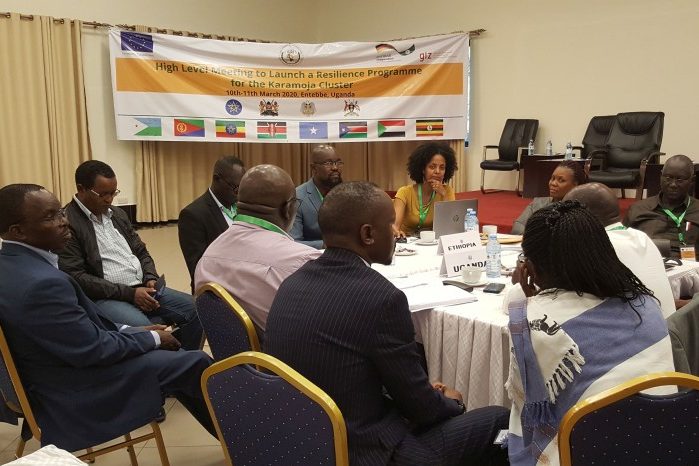The representatives of the four countries (Ethiopia, Kenya, South Sudan and Uganda), which share a common border in the area commonly known as the IGAD Cluster 1, held a meeting on 11th March 2020, at the Best Western Hotel, Entebbe, Uganda, to review and adopt the “Enhanced Resilience of Communities in the IGAD Cluster 1 to Drought and Related Disasters” programme.
The meeting was opened by Hon. Moses Kizige, Minister of State for Karamoja Affairs of the Republic of Uganda; and was attended by Hon. Eugene Wamalwa, Cabinet Secretary for Devolution and ASALs of the Republic of Kenya; H.E. Ms. Alemsehay Meseret, Ambassador of Ethiopia to Uganda; H.E. Mr. Thomas Kenneth, Department of Regional Organizations, Ministry of Foreign Affairs & International Cooperation, Republic of South Sudan; H.E. Hon. Josphat Nanok, Governor of Turkana County, Kenya; and Mr. Micah Powon, Permanent Secretary, State Department of ASALs, Government of the Republic of Kenya, Mr. Camlus Omogo, Director of CEWARN, representing the Executive Secretary of IGAD, H.E. Dr. Workneh Gebeyehu.
Policy officials and national experts from Ethiopia, Kenya, South Sudan and Uganda as well as staff from the IGAD Secretariat and GIZ advisors were also in attendance.
Neighbouring communities working together across four borders
The development of the programme followed a bottom-up approach informed by a series of cross-border multi-stakeholder dialogues, fora and meetings that commenced in Lodwar, Kenya on 28 July 2018. The conversations brought together cross-border communities along the Ethiopian, Kenyan, South Sudanese and Ugandan common borders to share, talk and listen to each other’s concerns following the perennial challenge of drought and famine.
Despite living in different countries, the four communities interact all year round when the weather and climate patterns change, and they are forced to move along and across the border in search of pasture and food. These cross-border interactions are sometimes friendly, but other times, living in such proximity can cause tensions and even lead to violence. Through IGAD’s facilitation, the programme was designed to align with priorities and details that are informed by local needs and realities.
The programme covers five interdependent pillars: sustainable management of rangeland and pasture resources; strengthening water management and development to enhance resilience; sustainable livelihoods, animal production and health; building peace and security; and access to social services including health, education, market and roads.
IGAD’s cluster approach to building drought resilience
The ministerial meeting was preceded by a technical review meeting on 10 March 2020. During this meeting, national experts, and local government representatives from the four countries in the IGAD Cluster I (Ethiopia, Kenya, South Sudan, and Uganda) reviewed the technical content and made recommendations of areas that needed further elaboration.
The process of developing the cross-border programme followed the steps adopted for a bottom-up resilience programming of IDDRSI in cross-border areas that is consistent with the objectives of the African Union Convention on Cross-border Cooperation (The Niamey Convention).
It was steered under the umbrella of the IGAD project ‘Strengthening the ability of IGAD (Intergovernmental Authority on Development) to promote resilience in the Horn of Africa’, supported by the European Union’s Emergency Trust Fund (EUTF), with technical assistance provided by GIZ’s ‘Strengthening the Capacity of IGAD towards enhanced Drought Resilience in the Horn of Africa – (SCIDA-II)’ Project.

